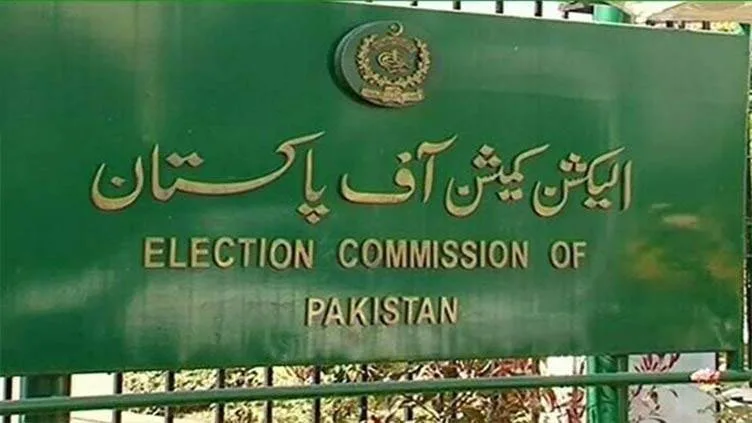Pakistan is a diverse country in South Asia follows parliamentary democratic system. The electoral system plays a crucial role in shaping political landscape of country and determining its leadership. This article aims to provide a comprehensive overview of electoral system in Pakistan, shedding light on its key components and the evolution of electoral practices over the years.
Historical Background
Electoral system in Pakistan has undergone several transformations since its independence in 1947. Country has experienced periods of military rule, martial laws and democratic governance each leaving an indelible mark on its electoral structure. Over the years, electoral system of Pakistan has evolved to address the changing needs and aspirations of the Pakistani populace.
Key Components of Pakistan’s Electoral System
Bicameral Legislature
Pakistan has a bicameral legislature consisting of the National Assembly and the Senate. Members of the National Assembly are directly elected by the public through a first-past-the-post (FPTP) voting system, while the Senate comprises members elected by the provincial assemblies.
Composition of National Assembly of Pakistan
| Province / Area | General Seats | Women Seats | Non-Muslim | Total Seats |
| Balochistan | 16 | 4 | 20 | |
| Khyber Pakhtunkhwa | 45 | 10 | 55 | |
| Punjab | 141 | 32 | 173 | |
| Sindh | 61 | 14 | 75 | |
| Federal Capital | 3 | – | 3 | |
| 10 | 10 | |||
| Total | 266 | 60 | 10 | 336 |
Composition of Senate Pakistan
| Provinces / Territories | General | Technocrats / Ulema | Women | Non-Muslims | Total |
| Sindh | 14 | 4 | 4 | 1 | 23 |
| Punjab | 14 | 4 | 4 | 1 | 23 |
| Balochistan | 14 | 4 | 4 | 1 | 23 |
| Khyber Pakhtunkhwa | 14 | 4 | 4 | 1 | 23 |
| Federal Capital | 2 | 1 | 1 | – | 4 |
| FATA | 4 | – | – | – | 4 |
| TOTAL | 62 | 17 | 17 | 4 | 100 |
Provincial Assemblies
In addition to the National Assembly, Pakistan has four provincial assemblies in Punjab, Sindh, Khyber Pakhtunkhwa, and Balochistan. Each provincial assembly is responsible for electing members to the Senate, contributing to the federal legislative process. Seats distribution of Provincial Assemblies is as follows:-
| Province / Area | General Seats | Women Seats | Non-Muslim | Total Seats |
| Balochistan | 51 | 11 | 3 | 65 |
| Khyber Pakhtunkhwa | 115 | 26 | 4 | 145 |
| Punjab | 297 | 66 | 8 | 371 |
| Sindh | 130 | 29 | 9 | 168 |
| Total | 593 | 132 | 24 | 749 |
Election Commission of Pakistan (ECP)

Election Commission of Pakistan (ECP) is an independent constitutional body responsible for organizing and conducting elections at various levels in Pakistan. All political parties need to be registered with ECP in order to participate in electoral system. ECP is also responsible to allot symbol to political parties and Independent members contesting in elections. ECP ensures the transparency and fairness of the electoral process and works to uphold democratic principles. ECP is the final authority to announce official results of the elections.
First-Past-the-Post System
The FPTP system is employed in the election of members to the National Assembly and Provincial Assemblies of Pakistan. Under this system, candidates compete in single-member constituencies of both National and Provincial Assemblies. Candidate with the highest number of votes secures the seat in respective constituency of National or Provincial Assembly.
Proportional Representation in Senate
Senate elections are conducted through a proportional representation system, where political parties nominate candidates based on their representation in the provincial assemblies. This ensures a more balanced representation of different political groups by means of the single transferable vote. The Senate is not subject to dissolution but the term of its members is six years.
Challenges and Reforms
Despite the democratic framework, Pakistan’s electoral system faces various challenges. Issues such as electoral fraud, manipulation, rigging and the influence of money in politics have been raised by critics. Additionally, there have been concerns about the representation of women and minority groups in the political arena.
To address these challenges, there have been ongoing efforts to introduce electoral reforms. These reforms aim to enhance the transparency of the electoral process, ensure fair representation, and strengthen democratic institutions. Electronic voting machines (EVMs) have been considered as a potential solution to address concerns related to the manual voting process.

In August 2021, Prime Minister of Pakistan Imran Khan has witnessed the demonstration of indigenous developed EVM. However, Electronic Voting Machine is not being materialised in upcoming General Election being held on 8 February 2024 and due to legislative formalities decision is yet to be taken to utilize EVM in elections.
Conclusion
Pakistan’s electoral system is a dynamic and evolving aspect of its democratic governance. Country has witnessed both successes and challenges in its electoral history which reflect the complexities of its political landscape. As Pakistan continues to strive for democratic consolidation, efforts to address electoral challenges and reforms will play a crucial role in shaping the future of its electoral system.
For more related content click here.


Pingback: How New Government in Formed in Pakistan? - Info Rack